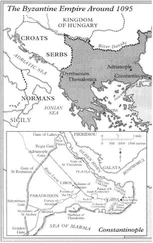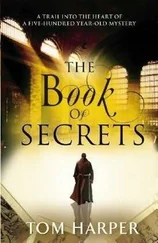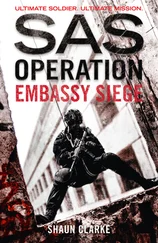Tom Harper - Siege of Heaven
Здесь есть возможность читать онлайн «Tom Harper - Siege of Heaven» весь текст электронной книги совершенно бесплатно (целиком полную версию без сокращений). В некоторых случаях можно слушать аудио, скачать через торрент в формате fb2 и присутствует краткое содержание. Жанр: Исторический детектив, на английском языке. Описание произведения, (предисловие) а так же отзывы посетителей доступны на портале библиотеки ЛибКат.
- Название:Siege of Heaven
- Автор:
- Жанр:
- Год:неизвестен
- ISBN:нет данных
- Рейтинг книги:5 / 5. Голосов: 1
-
Избранное:Добавить в избранное
- Отзывы:
-
Ваша оценка:
- 100
- 1
- 2
- 3
- 4
- 5
Siege of Heaven: краткое содержание, описание и аннотация
Предлагаем к чтению аннотацию, описание, краткое содержание или предисловие (зависит от того, что написал сам автор книги «Siege of Heaven»). Если вы не нашли необходимую информацию о книге — напишите в комментариях, мы постараемся отыскать её.
Siege of Heaven — читать онлайн бесплатно полную книгу (весь текст) целиком
Ниже представлен текст книги, разбитый по страницам. Система сохранения места последней прочитанной страницы, позволяет с удобством читать онлайн бесплатно книгу «Siege of Heaven», без необходимости каждый раз заново искать на чём Вы остановились. Поставьте закладку, и сможете в любой момент перейти на страницу, на которой закончили чтение.
Интервал:
Закладка:
Like a shadow travelling in advance of its owner, I knew the coast must be close when the sea began to fill with an ever greater number of small vessels. I watched them nervously, but they were merely fishermen and shallow coastal traders who gave us a wide berth. Soon afterwards the land itself appeared: a low and inviting strip of shore that turned out, as we drew closer, to be only the arms of a great inland lagoon. We passed through to a flat sea studded with fragments of islands; on one of these, still some way from the land, was the port of Tinnis.
I had believed that a man who had lived in Constantinople could never find any place exotic, that every race and colour of men, together with all their works and produce, were to be found in that city. Tinnis, though, was different: the dhows and feluccas that swarmed around the island like bees in a hive; long poles with drying flax hanging off them like hair; the slender turrets of the Ishmaelite churches and the mysterious chants of their priests, which echoed across the still water five times each day. But even more strange than that, I suspected, was the knowledge in my heart that this was Egypt, a land that had been ancient even in the time of the ancients. Byzantine emperors had once ruled this land, and Romans before them — but they were mere footnotes in a history of infinite depth and magnificence.
Our unexpected arrival caused considerable stir. Two war-galleys rowed out to challenge us, and our sailors waited anxiously by the naphtha throwers while Nikephoros conducted a brisk exchange with the Fatimid captain through the stammering efforts of our priest. Eventually, we convinced them of our neutrality — though even when one boat returned to the harbour to deliver the news, the other hovered vigilant near by.
For three full days we hung there on our anchor, like a mote of dust caught in a sunbeam. The captain struck the sails and fashioned makeshift awnings to shade the deck, for the planks were beginning to warp apart in the glare. After the second day, I thought the sinews of my mind might be warping too. I watched the sun inch across the sky until my eyes burned, and found myself longing for each repetition of the plaintive Ishmaelite prayer-chant to mark the passing of the days.
By the fourth afternoon I was almost past caring. So I did not hear the measured splash of oars approaching, or the creak of the thole-pins, and only realised that the confines of our solitude had been broken when the sleeping crew about me suddenly leaped up and began to array themselves in formal display. Almost before I realised it, something thudded gently against our hull and dark hands reached over the side. Nikephoros strode out from his cabin, his jewel-crusted lorum draped hastily over his shoulders, as the Fatimid envoy hauled himself onto our ship.
Every man on deck fell silent. Most stared in astonishment, though a few dropped their eyes in shame or embarrassment. The colour drained from Nikephoros’ face so that he seemed even more pale beside the visitor.
The new arrival was an African. To many of our crew that alone would have been an incomparable novelty. I had seen a few of his race in Constantinople — expensive slaves in the noblest households, or porters on the docks — but never any like him. Everything about him marked him as a lord or prince: his proud bearing, his extraordinary height, the rich golden bands around his arms and the yellow robe that hung to his ankles. He was so different to any other man that it would be hard to call him handsome, but there was something in his face — beside his strangeness — that attracted the eye and held it. His scalp was shaved clean and glistened like wet tar in the heat, while his strong features wore authority easily. Strangely, he reminded me of Sigurd, though he could hardly have been more different from the hairy, sallow-skinned barbarian.
He smiled — a broad, white-toothed smile that you immediately wanted to share — then said: ‘Praise be to God, the Lord of the universe — and peace.’
Nikephoros remained obviously unmoved by the man’s smile — indeed, he seemed to be speaking through a mouthful of barely swallowed anger. ‘Who are you?’ he demanded.
‘I am Bilal al-Sud, captain of the Qaysariyya guard. My master, the caliph of the Fatimids, the Commander of the Faithful, has sent me to greet you. If you come in peace and honest friendship, you are welcome in his realm.’
No doubt he expected some piece of well-honed diplomatic courtesy in reply. In this he was disappointed.
‘You speak Greek.’ Nikephoros’ tone suggested it was more a curiosity, like a dog trained to answer questions, than an accomplishment.
Bilal flashed his brilliant smile again, though this time the white teeth seemed somehow sharper. ‘I learned it from Greek slaves. The caliph has many in his palace.’
The warning had its desired effect. Nikephoros mastered his sneer and assumed a more polished, tactful demeanour. ‘I have gifts and messages for the caliph from my master, the emperor Alexios of Byzantium.’
Bilal nodded. ‘The caliph is eager to see them. He has ordered me to escort you up the river to al-Qahira.’ He looked around. ‘Your ship is magnificent, but she will not manage the bends and shallows of the Nile. You will come in my barge.’
We left the comforting bulk of our ship behind and rowed across the lagoon. The shores drew closer and began to pinch together, though if you looked ahead they never seemed to join. At some point I suppose we must have entered the mouth of the river, though there was nothing obvious to define it: the land off our beams was still as distant as ever, far wider than the Bosphorus at Constantinople. I looked out across the brown waters, curious to see something of this fabled land, but all I saw was water and reeds.
We spent two days and two nights on the Egyptian barge. It was an eerie voyage, more like a dance: we often turned where no turn seemed necessary, so many times around that sometimes the current seemed to be pushing us upstream. I pitied the men on the oars. As the river banks drew closer I began to make out the features of the landscape: a dirty brown soil bristling with the stalks of harvested crops, and divided by low ridges like causeways through the desert. Sometimes, where they intersected, I saw villages, though many were in ruins and I spied few inhabitants.
‘What are they for?’ I asked Bilal, pointing at the ridges. They seemed too regular and evenly spaced to be natural.
‘When the river floods, they are the only way to travel the land. Every year, the Nile bursts its banks and waters the fields enough to sustain a whole year’s crops.’
‘And when does that happen?’
Bilal scowled. ‘August.’
I looked back at the fields. Even from that distance I could see that they were the pale brown colour of clay, not the rich black of wet soil. A skein of cracks had shattered the hard earth, and nothing grew save a few strands of wild grass. Above us, the sun burned down from the cloudless mid-September sky.
‘Sometimes the floodwaters come late,’ said Bilal, unconvincingly.
On the third day, the river widened again as several strands of its delta came together. Just beyond, on the eastern bank, a host of towers rose straight against the desert sky, so many that they clustered together and almost became a perfect whole. White triangles of sail flapped beside wharves that bustled with commerce, and columns of dust billowed up from the heavy-laden roads.
‘Is that. .?’
‘Al-Qahira,’ said Bilal, and the sounds took on a deep and savage mystery in his voice. ‘Or, as your Roman ancestors called it, Babylon.’
10
Until then, I had always imagined ambassadors to be like angels. They were higher beings, of less substance and greater power than mere mortals, flitting about the world impervious to threats of harm. There in Egypt, I realised the truth: ambassadors were little better than prisoners. The moment we set foot on the wharf we were hurried to a caravan of litters borne by bare-chested Nubian slaves, who carried us in curtained blindness to a secluded courtyard, and then up a stair to the quarters appointed to us. There were three interconnecting rooms, spacious and airy and lavishly furnished. But the ornate screens that curved and twined across the windows were iron, and when the caliph’s attendants left us alone I heard the door lock from the outside.
Читать дальшеИнтервал:
Закладка:
Похожие книги на «Siege of Heaven»
Представляем Вашему вниманию похожие книги на «Siege of Heaven» списком для выбора. Мы отобрали схожую по названию и смыслу литературу в надежде предоставить читателям больше вариантов отыскать новые, интересные, ещё непрочитанные произведения.
Обсуждение, отзывы о книге «Siege of Heaven» и просто собственные мнения читателей. Оставьте ваши комментарии, напишите, что Вы думаете о произведении, его смысле или главных героях. Укажите что конкретно понравилось, а что нет, и почему Вы так считаете.










